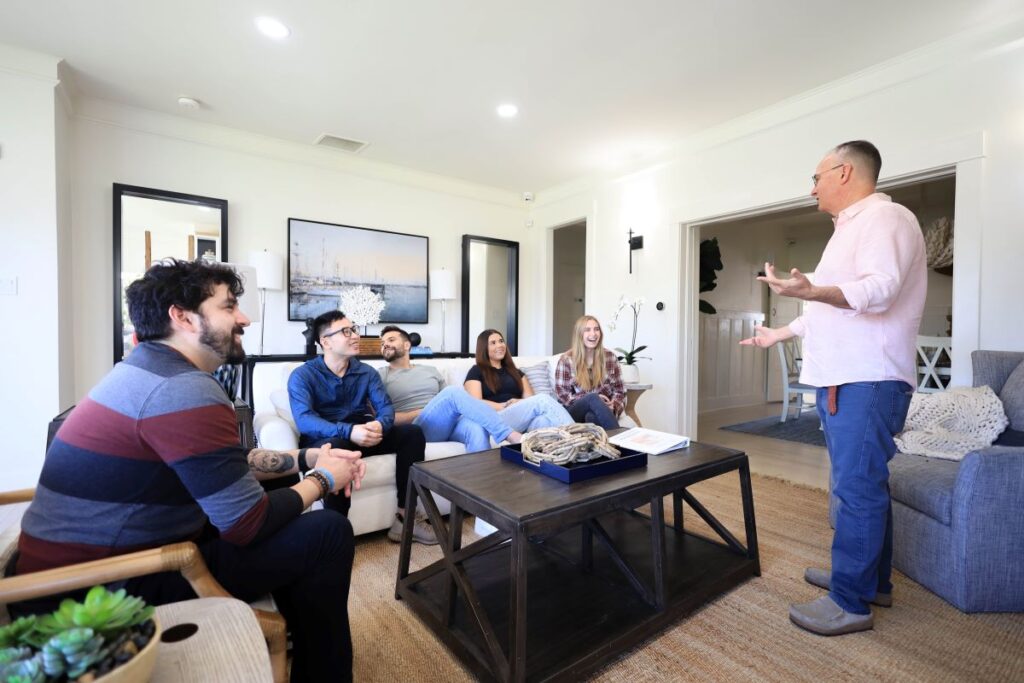Addiction (substance use disorder) is a chronic but treatable condition. As long as you are able to set yourself up for success and avoid common mistakes, you should be able to make serious progress toward the goal of long-term sobriety.
Common Mistakes Made in Rehab
Everyone has a unique experience of addiction and recovery, although some common rehab mistakes can disrupt or derail the process. Let’s learn a bit more about these mistakes and what you can do to avoid them.
Here are 5 common client mistakes made in rehab:
1) Thinking You Can Detox at Home
One of the most common and potentially life-threatening rehab mistakes is attempting to detox from drugs or alcohol at home rather than engaging with supervised medical detoxification.
When someone is physically dependent on drugs, alcohol, or prescription medications, they will experience uncomfortable withdrawal symptoms upon discontinuation. Withdrawal from alcohol, opioids, and benzodiazepines can trigger fatal outcomes without close supervision.
By choosing medical detox, people with physical drug or alcohol dependence can safely and comfortably overcome withdrawal during the early stages of recovery. They can also benefit from continuous emotional and clinical care, mitigating complications and relapse.
2) Overlooking Co-Occurring Disorders
Substance use disorders frequently co-occur with mental health disorders like PTSD (post-traumatic stress disorder), anxiety, and depression. This can cause a vicious cycle as both the addiction and mental health components will feed off each other.
The best rehabs offer comprehensive initial assessments to help identify any co-occurring mental health disorders. They also offer targeted and integrated treatment of co-occurring disorders to treat both problems simultaneously.
It’s especially important for those who are self-medicating symptoms of mental health disorders with addictive substances to seek dual diagnosis treatment. Self-medication does nothing to address the underpinning issues and delivers only fleeting relief, while causing the user to spiral further down into addiction.
3) Comparing Your Journey to Others
All addictions are unique and present on a spectrum from mild to severe. Beyond this, everyone has completely different backgrounds and circumstances, meaning that it’s futile for someone to compare their recovery journey to that of others.
Peer support can be invaluable during the recovery process, whether in group therapy sessions or peer support group settings. Instead of playing the comparison game, though, it’s much more effective for people to seek accountability, encouragement, and coping techniques from peers at rehab. They may also form part of an ongoing sober support network.
4) Not Having a Relapse Prevention Plan
Research shows that relapse rates of addiction mirror those of other chronic conditions. It’s estimated that 40% to 60% of those who go to rehab will relapse at least once during their ongoing recovery journeys.
Relapse is, for many people, a common part of the recovery process. It does not signify failure or a lack of effort. Rather, it suggests that adjustments to the treatment plan may be required.
All effective addiction treatment incorporates a solid aftercare component. The unique nature of all substance use disorders and personal variables mean that aftercare is different for everyone. Options include ongoing outpatient therapy, participation in support groups like AA (Alcoholics Anonymous) or NA (Narcotics Anonymous), or sober living arrangements.
5) Thinking the Work is Done After Rehab
Recovery from addiction is not a quick fix and the process does not finish when someone leaves rehab. Indeed, many people find that stepping down to a less intensive level of care makes the transition to sober living smoother and easier.
Not everyone attends peer support group meetings after rehab, although many people find this helps them to stay on track, especially in the early stages.
To thrive rather than simply survive in sobriety usually involves a person becoming aware of their triggers for substance use, developing and utilizing healthy coping mechanisms, focusing on healthy lifestyle changes like getting enough sleep, eating a balanced diet, staying hydrated, and exercising regularly.
Recovery is something that you will have to work each and every day at in order to maintain the goal of long-term sobriety.
Get Addiction Treatment Help at Gratitude Lodge
Begin your recovery from drug addiction or alcoholism at Gratitude Lodge in Southern California. We can help you from detox to discharge and beyond when you receive treatment at one of our centers in Long Beach or Newport Beach, CA.
Supervised medical detox enables you to move beyond physical dependence on drugs or alcohol, streamlining the withdrawal process.
When you’re ready to commit to sustained recovery from addiction, call 800-994-2184 for effective rehab in California.




























